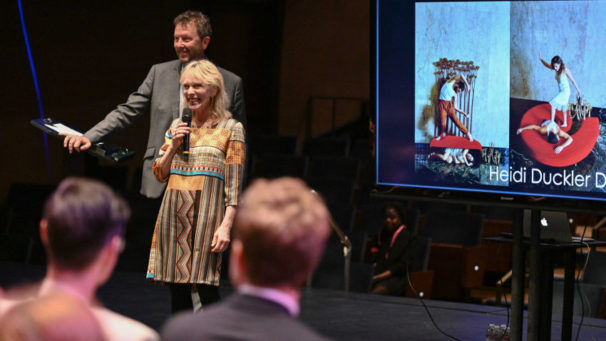
update: August 10, 2021
“The Chandelier” is playing at the Wallis this weekend!
April 27, 2020: Almost one year ago nearly to the day, on April 30, 2019, The Wallis Annenberg Center for the Performing Arts gathered the Los Angeles dance press to its stage for an announcement. Paul Crewes, artistic director of Beverly Hills-based theater and Rachel Fine, its executive director/CEO, were venturing on a concept that was a long time coming. For its 2019-20 dance season, The Wallis would uniquely book Los Angeles dance companies. One by one, the choreographers present at the event passed the microphone to describe their wares. Joy — not coronavirus — was in the air.
One of the six companies on that roster was Heidi Duckler Dance. A proven player in the site-specific field, Duckler explained that her planned work, The Chandelier, was inspired by Brazilian author Clarice Lispector’s avant-garde novel of the same name — dating from the mid-1940s. Crewes assigned Duckler Dance a mid-April 2020 date, all but guaranteeing delicious L.A. evening weather in which to view the work. It would be pleasant for an audience to traipse the stylish patios and gardens of The Wallis — an artfully repurposed historic Beverly Hills post office. Then came COVID. The malicious virus that does not discriminate between human hosts, absent a vaccine, put the kibosh on live theater. In an unthinkable act replicated by performing arts presenters across the nation (and the world), Crewes realized he would have to kill his own season — before it killed his audience.
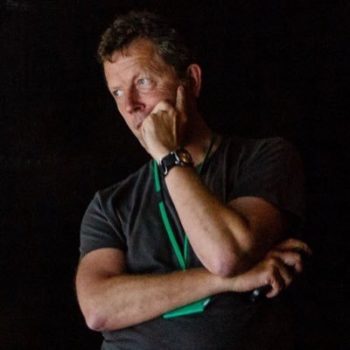
“It happened the same Sunday night we had Al Pacino in a staged reading of David Rabe’s ‘Pavlo Hummel,'” recalled Crewes in a Zoom interview. “Rachel, [Wallis board chairman] Michael [Nemerov] and I had a meeting that evening. Our next show Romantics Anonymous was arriving on a flight from the UK that Thursday. We were wondering … should it happen?”
Duckler was in her own cocoon of creativity. A decades-long producer-choreographer-director of vivid pageants of “immersive art” in nontraditional venues – laundromats, abandoned hotels, sanitariums, warehouses, subway terminals and the Los Angeles Police Academy — she uniquely has burnished dance into the city’s built environment.
“I was in planning stages for a work that would spread all over the [Wallis] grounds. We were inviting Wallis people for walk-throughs, with certain designers or artists.” But there was pushback. The Wallis was hedging. “‘I don’t think we can have this walk-through,’ they told us.” At first Duckler assumed this was about gathering clusters of people. But slowly she realized “I think we are closing down. Whoa, wait a moment I need to think about this.”
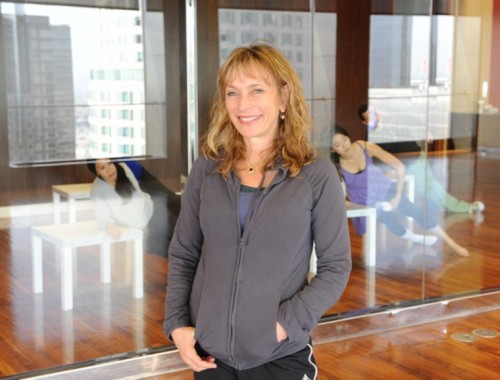
The Wallis took the plunge and cancelled “Romantics.” That decision, Crewes explained, was driven by the exigency of [approximately] 21 artists and crew members coming to Los Angeles from Europe for a 16-show run. Said Crewes, “They thought we were over reaching. Even people in L.A. were saying that. None of the other L.A. presenters had canceled. Wednesday of that week, Broadway was still open. By Thursday Broadway closed. And on Friday Trump placed the travel ban on the U.K. Things were changing on an hourly basis. But we had to focus first on “Romantics.” I was very concerned about people being stranded in L.A.”
On Friday March 13, Crewes made public what his team had decided days prior: all shows were cancelled through April, subsequently extended to the end of May. The Wallis annulled The Minghella Project, a Crewes pet project and a commission for BODYTRAFFIC. Sadly, the much-loved, high-energy-and-acrobatics troupe, Diavolo, hit the cutting room floor. “We were dismantling a season we had constructed. We’d been making “Minghella” for eighteen months. It was heartbreaking. But it was the world we were in at that moment,” he said.
Then something unexpected occurred: Crewes got a download of Duckler tenacity. Her deep experience staging site dance, often under truly unbelievable conditions in very rudimentary venues, sparked an idea. She proposed to stage an introductory work to “Chandelier,” a kind of dance appetizer, foreshadowing the main themes of the live-on-the Wallis-grounds work. It would be technology-infused. It would be a shared-audience experience — of course not in a shared space. And it would take place on Zoom. Illuminating the Chandelier, a 40-minute streamed dance will spool live-on-line this Thursday evening starting at 5 pm.
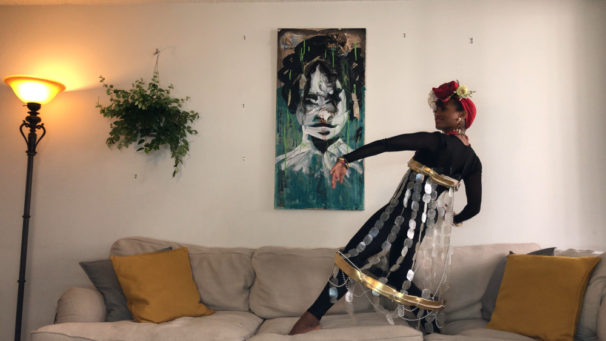
“This came from Heidi,” said Crewes simply. “Heidi does what Heidi does; she creates in the environment that she is in. Now she is creating in a new circumstance; she is a remarkable choreographer in that she responds to the environment she is in.”
Illuminating The Chandelier explores a language of intimacy as people rely on technology to connect. According to descriptions, the work uses innovative methods to piece together movement phrases from the cast’s homes, working in tandem with musicians, composers, and designers to form a cohesive performance telling the tale a character named Virginia. (A young female heroine is a familiar trope in Duckler’s work.)
“My show illustrates Virginia’s coming of age,” said Duckler. “She is disassociated. I read the book many times and I thought, wow, this is a story we are all living. We are feeling lost and finding a whole new way of being and existing. The piece is about time, space and memory, and it is a tragic story. Virginia’s very misunderstood—and she misunderstands. I think it’s the artist’s personality to not have that logic brain, to be that sensitive that you feel things on a molecular level.”
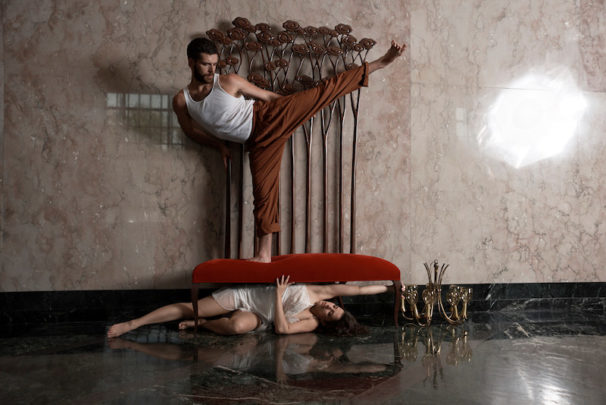
“I am not a techie,” she said. “But while using Zoom, I am thinking this is a platform; why can’t you make site work on Zoom? We discovered that you can change the video background; you can put your dancers inside these encapsulated spaces; their bodies can disappear in the space and reappear. It’s a whole fictional universe that they exist in. It’s fascinating.”
The longer, larger, live performance has no new booking yet, but The Wallis team is planning a May new-season announcement for 2020-21. “I think we all have to take on board the environment we’re in—and I think Heidi is in the lead on this,” said Crewes. “What she is creating, we hope, will be supportive toward getting every one back to live performance. You cannot beat live performance, but we have to accept that we cannot do it. Now is a time to explore new ways of making art, and it will be interesting to see where we get to with it. But for us, it will always be about getting a community physically together — to feed their souls.”
arts·meme founder/dance critic Debra Levine authored this article.
Illuminating the Chandelier | on Zoom| Thurs April 30, 2020, 5 pm
